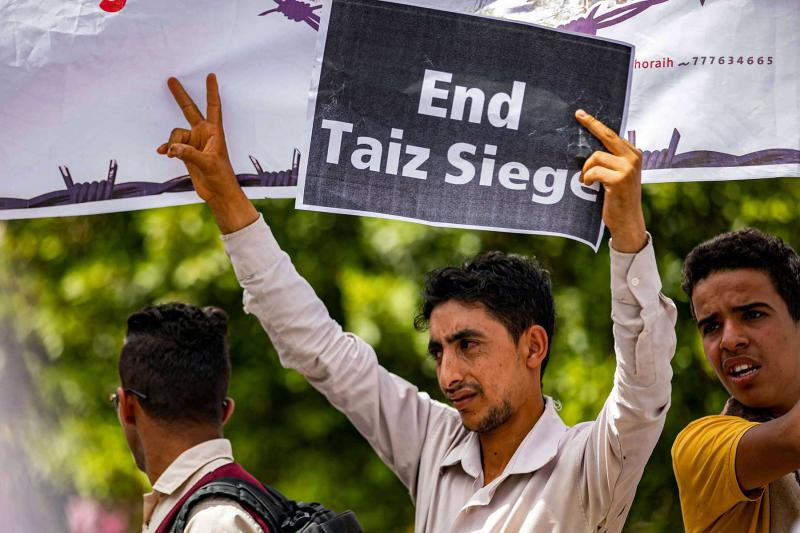Yemen government criticize ‘one-sided’ UN proposal on Taiz
In an effort to break the
impasse after the Houthis, who are supported by Iran, rejected Hans Grundberg's
initial proposal, the besieged city of Taiz would have its highways opened,
according to the Yemeni government.
The Yemeni government
said that it was not contacted before to the proposal's creation and that it is
"biased" in favor of the Houthis.
In an effort to break the
deadlock during talks between the Yemeni government and the Houthis in the
Jordanian capital of Amman, Grundberg first recommended opening a main route
and numerous small secondary roads running into and out of Taiz.
The Houthis rejected the
proposal and insisted on opening the dated, unpaved, and small roads, whilst
the Yemeni government accepted it.
The leader of the
government's team at the discussions in Amman, Abdul Kareem Shaiban, claimed
that the envoy's latest plan, which suggests opening only tiny roads that do
not lessen the agony of tens of thousands of people who live under the Houthi
siege, has taken into account Houthi demands.
In a telephone interview
with Arab News, he said, "He should have sat with us before making the
proposal that has removed the need for opening the main route known as Softeel,
which connects Taiz with Aden and Sanaa." "We have come full circle."
Shaiban criticized the UN
envoy for abandoning his earlier plan and supporting the Houthi demands,
claiming that the Yemeni government team was not invited to Amman to debate the
new proposal.
In response to criticism
from the government, the UN Yemen envoy's office told Arab News that Grundberg
has actively engaged with both parties to push for the full implementation of
the truce's provisions, such as opening roads in Taiz, and that any fresh ideas
or proposals on related matters are discussed with both parties.
Road opening draft plans
and possibilities have been presented and debated with both sides in Taiz and
other governorates. The UN emphasizes the necessity of displaying the political
will to negotiate a deal as soon as possible in order to make real progress,
the office stated.
Under the terms of the
UN-mediated agreement, which took effect on April 2, the Yemeni government
permitted travelers with Houthi-issued passports to fly on Yemenia Airways,
facilitated the arrival of fuel ships to the Hodeidah seaport, and allowed
commercial flights to resume from the Houthi-controlled airport in Sanaa.
The Houthis have ceased
fighting, most notably their devastating onslaught on Marib, the capital city,
but they have steadfastly refused to end their siege of Taiz, a crucial
component of the ceasefire.
Shaiban proposed opening
five routes that connect the city with neighboring provinces in a letter that
was delivered to the UN Yemen envoy on Tuesday, including two roads that were
mentioned in the envoy's initial request.
We guarantee that these
routes are secure, fulfill the humanitarian component, and benefit the
populace, the man stated.
According to the UN
representative for Yemen, military representatives from the Houthis and the
Yemeni government met this week in Amman and reaffirmed their commitment to
upholding the cease-fire by refraining from hostilities and military operations
throughout Eid celebrations. Additionally, both parties concurred that they
would work together to maintain the cease-fire, foster trust, and lessen Yemeni
citizens' suffering.
According to a statement
from Grundberg, "the parties agreed to continue discussions focused on
preventing or reducing military personnel and equipment movements and means of
exercising effective operational control as much as possible to ensure that all
forces understand and comply with their obligations in the truce."


Comments
Post a Comment